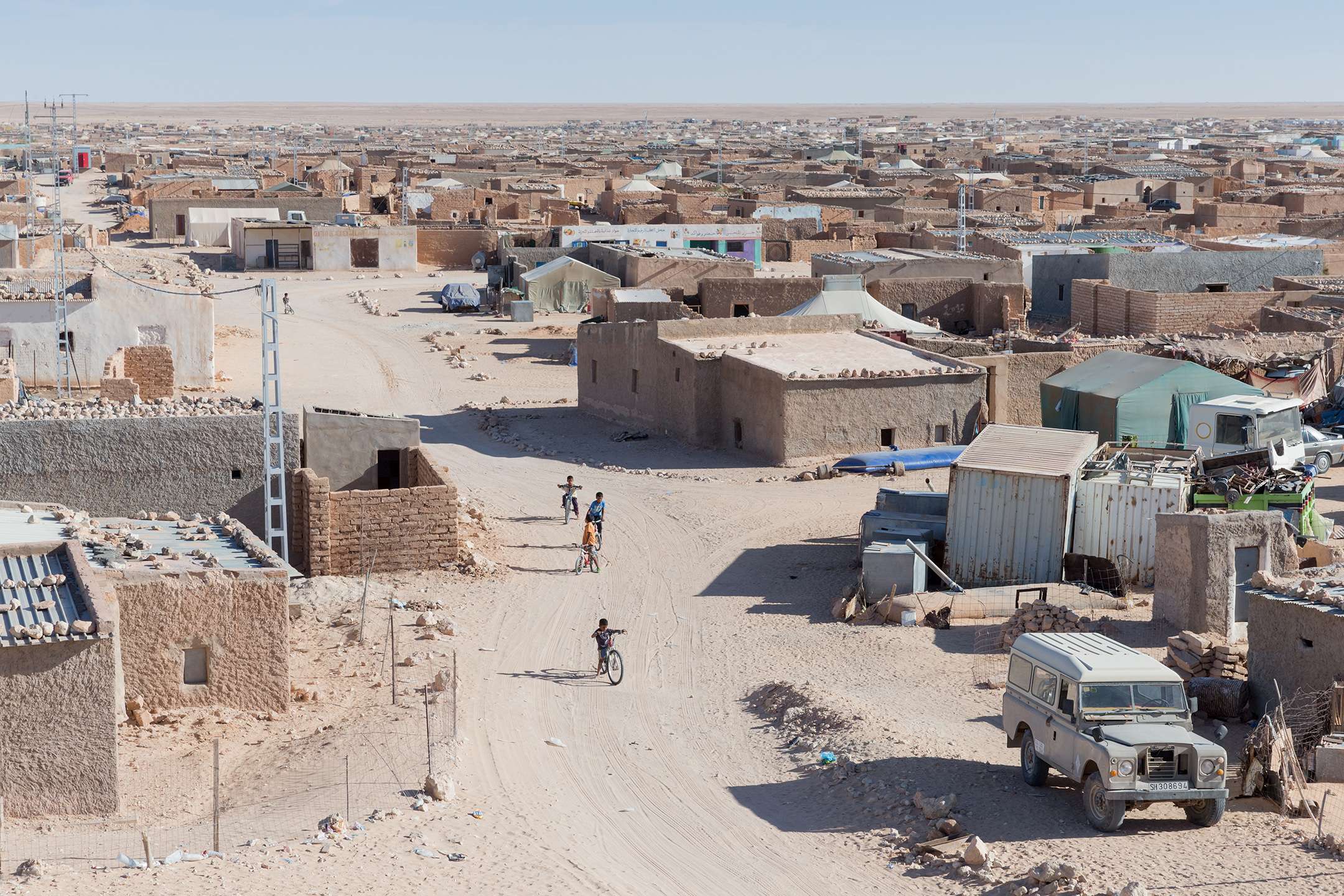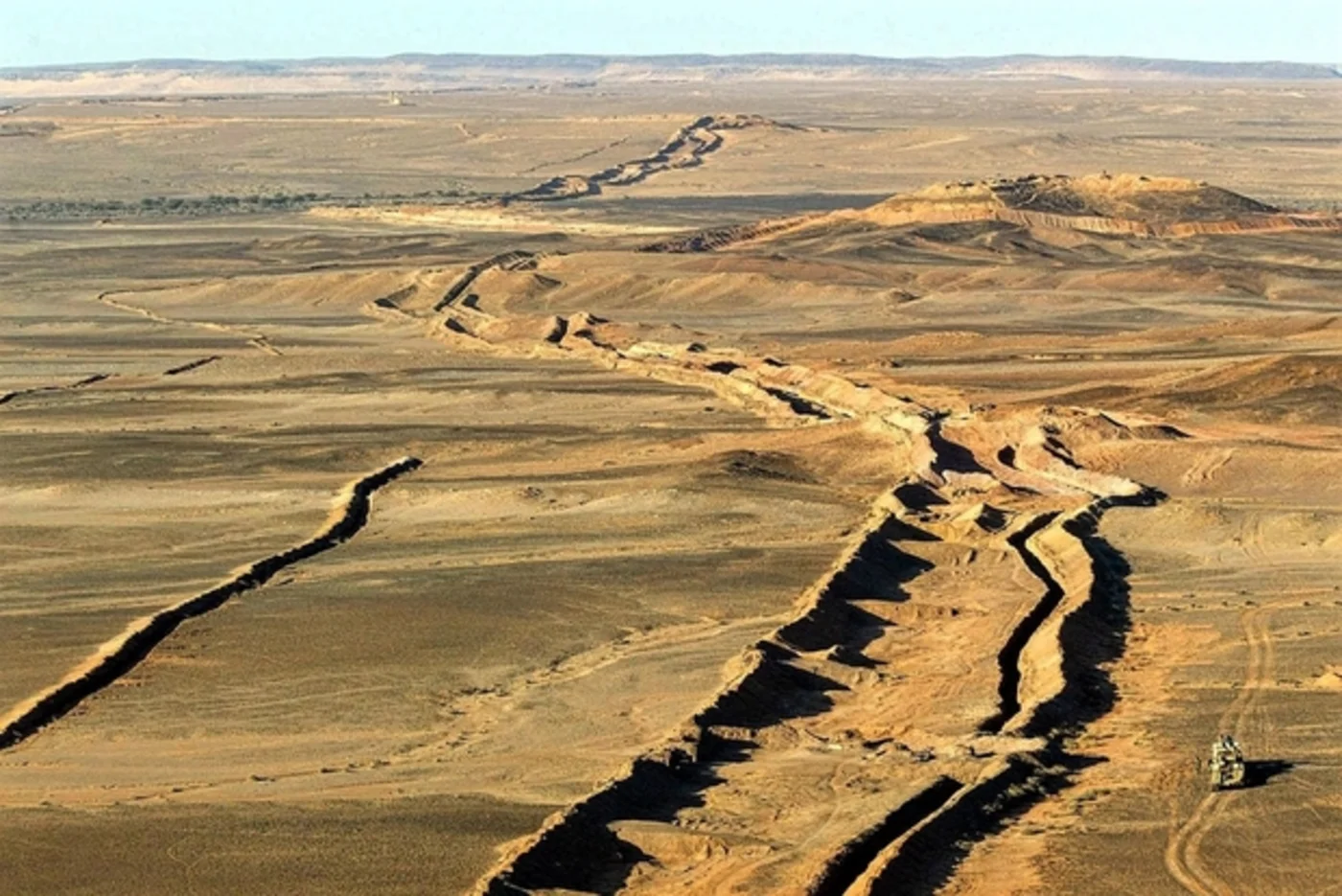Has Algeria finally lost Western Sahara?

After six months of fallout from France’s recognition of Moroccan sovereignty over Western Sahara, Algeria, stuck between a rock and a hard place, has come crawling back to Europe.
Confronting the conundrum of geostrategic alignment which troubles North Africa, it seems Algiers has chosen the West at the dire cost of the 50 year long struggle for Sahrawi independence.

On 25 September 1963 a thousand Moroccan soldiers crossed into a neonate Algeria and seized two border posts in the western desert region of Saoura. For four months and three weeks the Algerian revolutionaries clashed with the invaders in the barren wastelands on the Sahara’s periphery, resulting in the deaths of hundreds on both sides. The Sand War, as it would become known, ended in a bitter stalemate, with Morocco troops forced to cede their gains and uphold the status quo – a costly diplomatic blunder in the eyes of the international community. A nascent revolutionary state, its euphoric birth blighted by a neighbour’s hawkish opportunism, Algeria never forgot the ambitions of the palace in Rabat. The threat of Greater Morocco – a return to borders of French colonial rule which included areas of the petroleum rich Saoura – was ever present and Algiers vowed to harry it wherever it sprung.
The conflict over Western Sahara was never Algerian expansion, nor was it fought with the best in mind for the indigenous Sahrawi people, whose pro-independence militants were backed by Algiers. The game for Algeria was simple – to bog down Morocco and sap faith in its own impetus. Thus the irresistible idea of Greater Morocco could be held in check and Rabat’s dominance in North Africa postponed. When the French left Western Sahara in 1975, much of the territory was cleaved out by Morocco at the expense of Mauritanian and Sahrawi claims. The building of giant sand berms in the 1980s secured Rabat’s control but the 2500km stretch had to be kept secure from the desert beyond, where the Sahrawi nationalist liberation movement, the Polisario Front lurked. Western Sahara had been split but the rebels still resided over vast swathes of arid land. Recent events however have dealt a major blow to Algeria’s strategy of deterrence via its backing of the Polisario. Last year France joined the US, Spain and Israeli in supporting Morocco’s annexation of Western Sahara, plunging relations between Paris and Algiers to an all time low.

The rhetoric was fierce and for some, the fracturing was deadly. The tit for tat that ensued saw French-Algerian writer and critic of Algerian president Abdelmadjid Tebboune’s regime, Boualem Sansal imprisoned in North Africa. French authorities responded by arresting Algerian influencers on terrorism charges, their attempt to deport them blocked by Algiers. A knife attack cost the life of a French citizen in Mulhouse, eastern France – committed by an Algerian which French authorities had tried to deport 14 times in vain – and froze relations further. Given the importance of Western Sahara to Algeria’s security and national pride, its reaction was unsurprising, perhaps even lacking. The weight of international presence under the green star of Morocco has never been greater.
This week, as Algeria and France held talks, looking to put six months of familial vitriol behind them, it became clear that Algiers has lost Western Sahara. In rapprochement with Macron and a country unlikely to back down, Algeria has prioritised trade with its second largest export partner over its support of Sahrawi independence. While Paris and Rabat prepare for a radically brazen joint military drill in September near the Algerian border, a move which Algeria’s Foreign Ministry described as an “unjustified military escalation” according to The New Arab, the North African nation looks to mend ties with its ex-colonial overlord. The intention of the September gathering can only be to serve as a rubber stamp to France’s unwavering position on Western Sahara. Yet Algiers looks to make friends.
The cause of Polisario dwindles with every piece of infrastructure erected by Morocco. To join rapidly expanding holiday resorts, Morocco and Mauritania have agreed to connect electricity grids through Western Sahara. As both countries increase border crossings and merge economically, the Sahrawi cause is left further out in the cold. With King Mohammed VI’s announcement of his ‘Royal Atlantic Initiative’, a proposal which would give ocean access via Western Sahara to the landlocked Sahel region, Morocco played the local crowd. Chad, Niger, Mali and Burkina Faso all welcomed the project despite having connections to far closer ports in neighbouring countries. One relationship which has been of particular benefit to Rabat is their cordial bonds with Tel Aviv. Their ties go way back to the construction of the Western Saharan sand berm, when Israeli engineers lent a hand, drawing on their experience from the West Bank. Following the controversial normalisation of relations between Rabat and Tel Aviv, a deal which set international recognition of Moroccan sovereignty over Western Sahara in motion, Morocco has built its military and security muscle with imported Israeli arms and technology. Not only has Rabat targeted Sahrawi activists with the Israeli built Pegasus monitoring software, as reported by Amnesty International, but last year it signed a $1bn contract to acquire surveillance satellites from Tel Aviv according to Middle East Monitor. No doubt this technology will be used to monitor the vast strips of desert that make up North Africa’s interiors and consolidate control over Morocco’s claims.

With Rabat winning allies, regional and international, Algeria looks isolated and vulnerable. To contend it needs the strong backing of a great power. Its ties with Russia are overstated by Western voices which mirth the reality of its long standing policy of non-alignment. Events like the visit of President Abdelmadjid Tebboune to Moscow in 2023 understandably provoked uproar from Europeans and Americans alike, who construct foreign policy around a cold-war inspired bipolar world. The proof that Algeria is not some sort of Russian satellite, like perhaps Khalifa Haftar’s administration in Eastern Libya, can be found in many places. Algeria’s exports are grafted onto European markets – its top three trading partners are Italy, France and Spain. Its relationship with Europe is of primary importance.
In April 2023, it joined other UN General Assembly members in voting on a resolution recognizing “the aggression by the Russian Federation against Ukraine,” according to The Washington Institute, though it abstained on five other General Assembly votes regarding the war. Real divergences in foreign policy have even materialised regarding Algeria’s neighbour Mali. While Russia has made great inroads in the Sahel following the domino of coups in the last five years involving Mali, Niger, Chad and Burkina Faso, Tebboune has urged the Malian military government to end the presence of the Russian private military contractor, the Wagner Group, in their country. Again the effective end of Francafrique, with Mali, Burkina Faso, Niger, Chad, Senegal, and Ivory Coast all terminating their defence agreements with Paris since 2022 and reorientating towards Moscow, has located Algeria at another geopolitical flashpoint.
With Algeria seemingly back on peaceable terms with France since the 31 March call between Macron and Tebboune, it took only a few days for tensions with Mali to surface. After Algeria shot down a Malian drone, the junta led country accused Algiers of supporting terrorism, according to the BBC. Indeed, Mali’s military are continuing their enduring campaign against Tuareg separatists in the country’s north, a movement Algeria has been accused many times of supporting. The Tuareg threat exploded in 2012 when a coalition of indigenous tribes and Islamic fighters blazed through Mali’s north, holding Timbuktu for nearly three months. They still reign over large areas of land today, though most of the major towns are back under government rule with the help of Russian mercenaries.

Menas Associates suggests that major defeat of Mali and its Russian allies to Tuareg forces in July 2024 was due to Algerian intervention, perhaps pressured France and US who were desperate to preserve some regional influence. Algiers’ motive could have been driven by the humiliating rejection of its BRICs application in 2023 and its warnings about deploying foreign forces so close to its border. It was after all Algerian guerrillas that expelled the French during the Algerian war of independence, now it seems guerillas are the antidote to all Algeria’s ails.
It is in this context that we see an isolated nation. A revolutionary Arab socialist republic which in an increasingly polarised world, has found nowhere to fit in, backing recent causes in contradiction to its region, from Assad, to Hezbollah and Hamas. The new lines that have been drawn in Africa force it to straddle greater gulfs and maintain ever fraying ties. In containing such contradiction, something has to break. The tragic cause of the Sahrawi people looks to be the first casualty in the geostrategic crisis that now grips Algeria.
The views expressed in this article belong to the author and do not necessarily reflect the editorial policy of Maghrebi.org. Alastair Tibbs is the editor of Maghrebi.org and a qualified journalist. You can follow him on X: @AlastairTibbs
Want to chase the pulse of North Africa?
Subscribe to receive our FREE weekly PDF magazine













